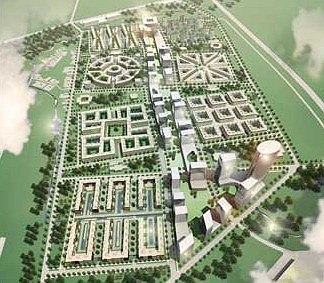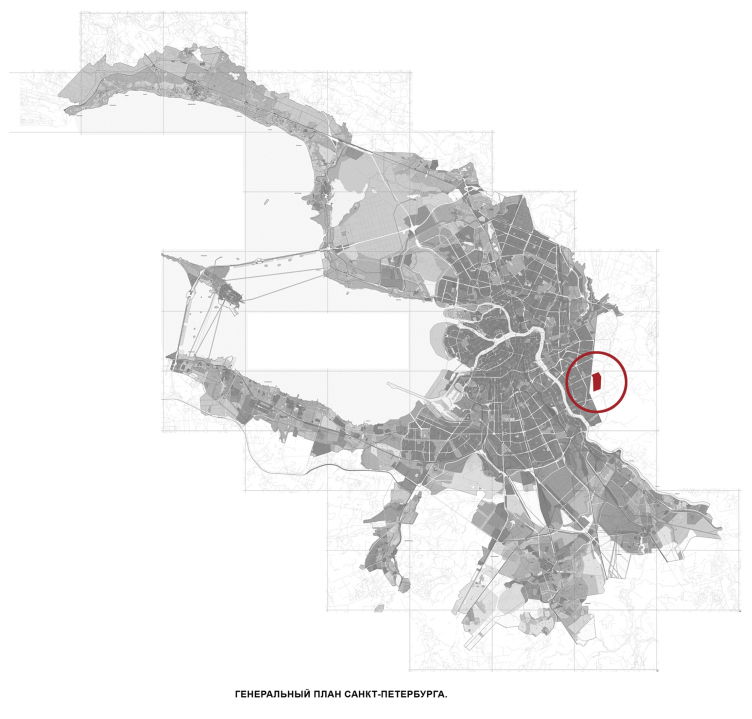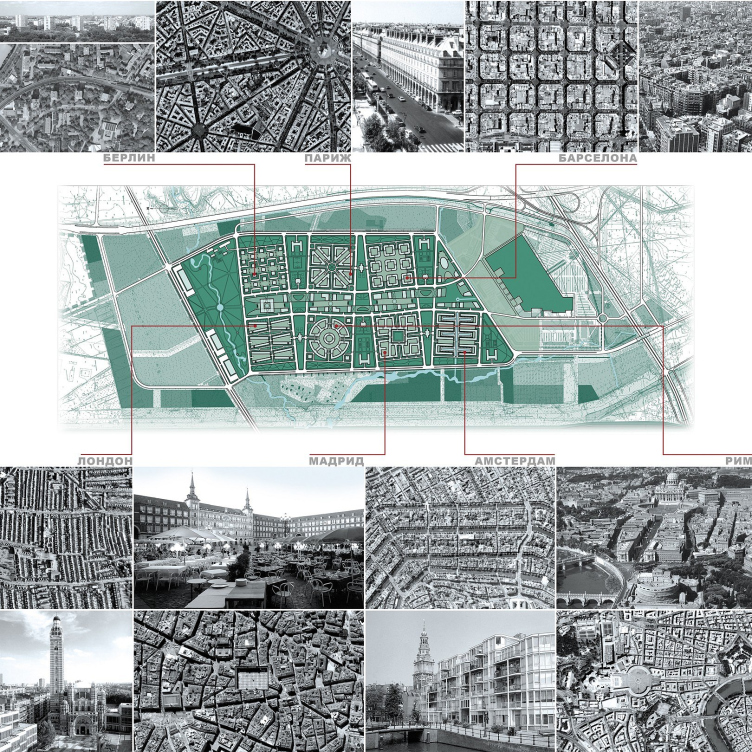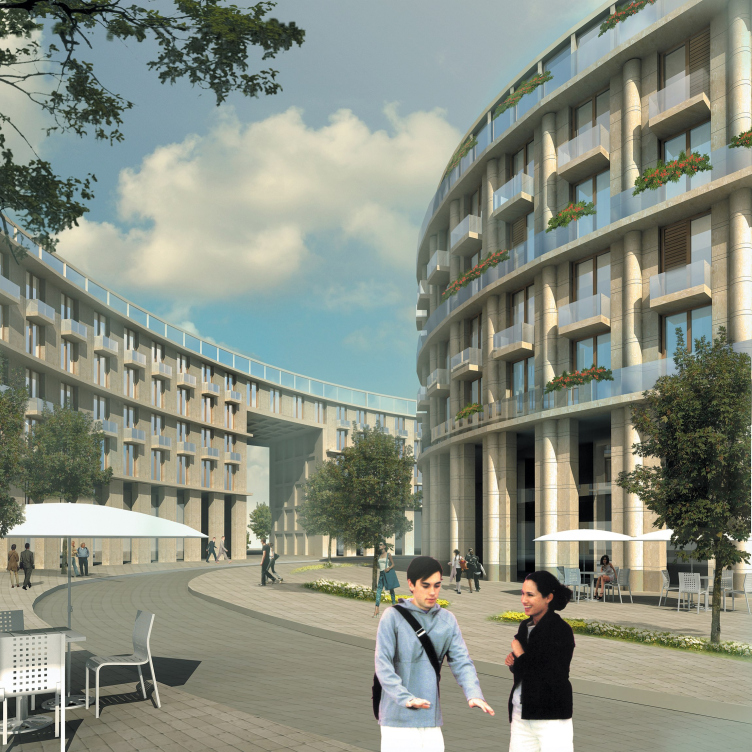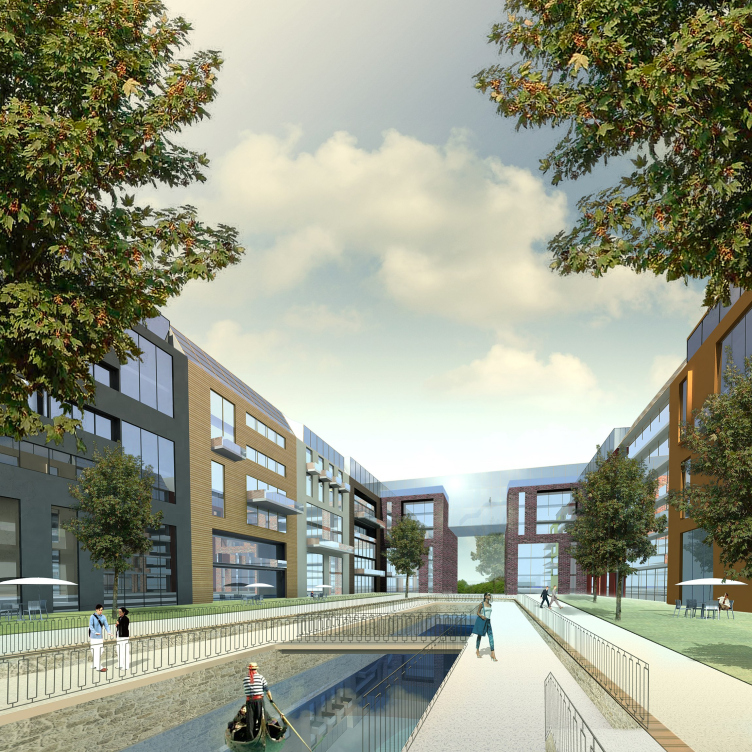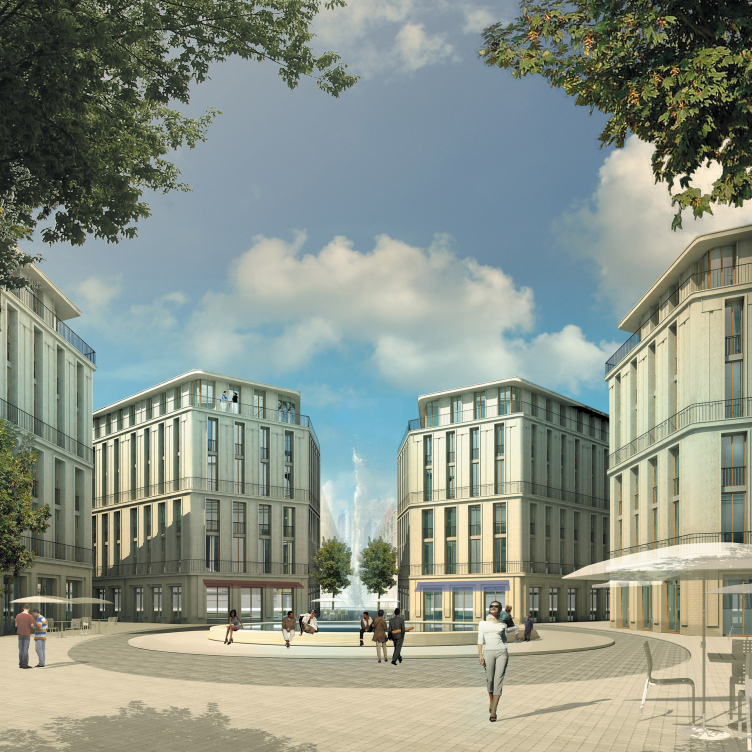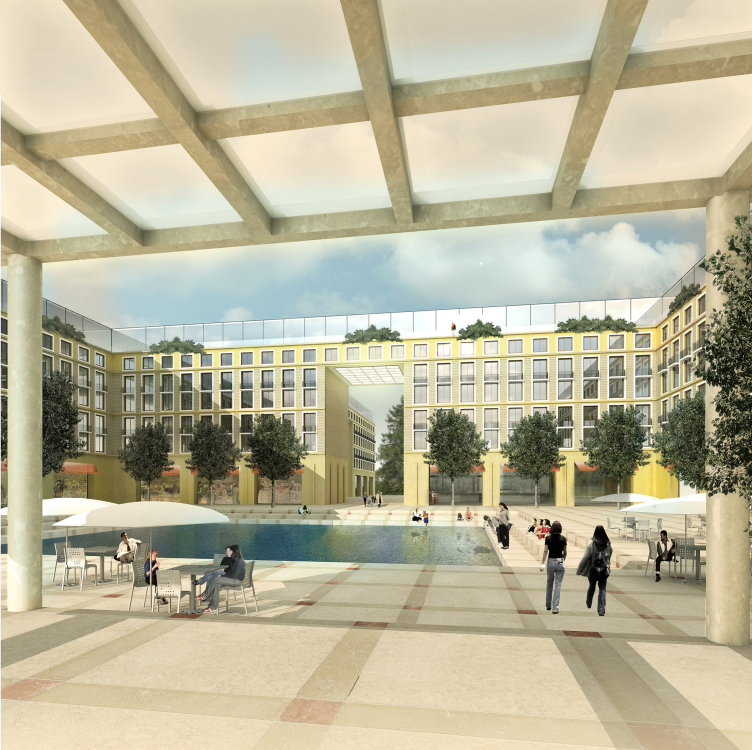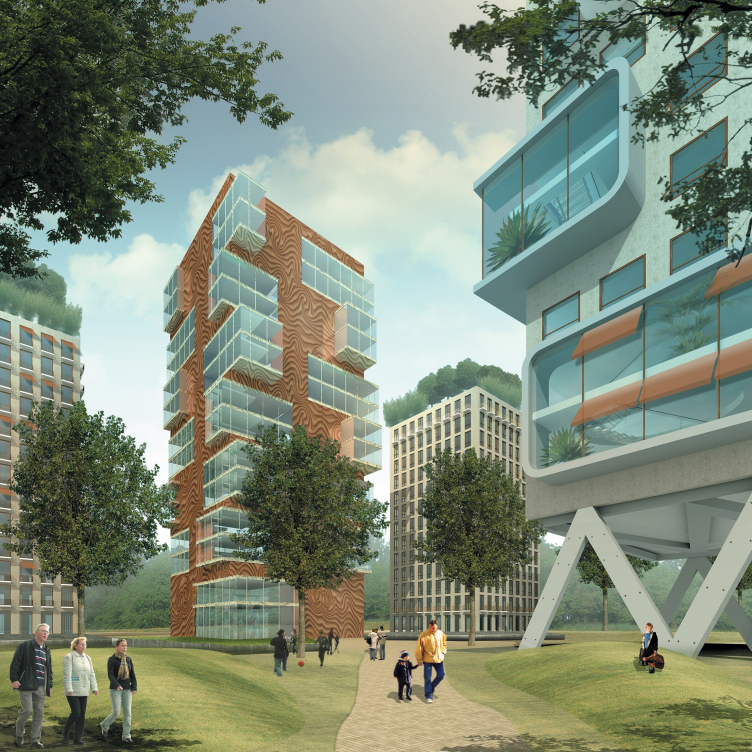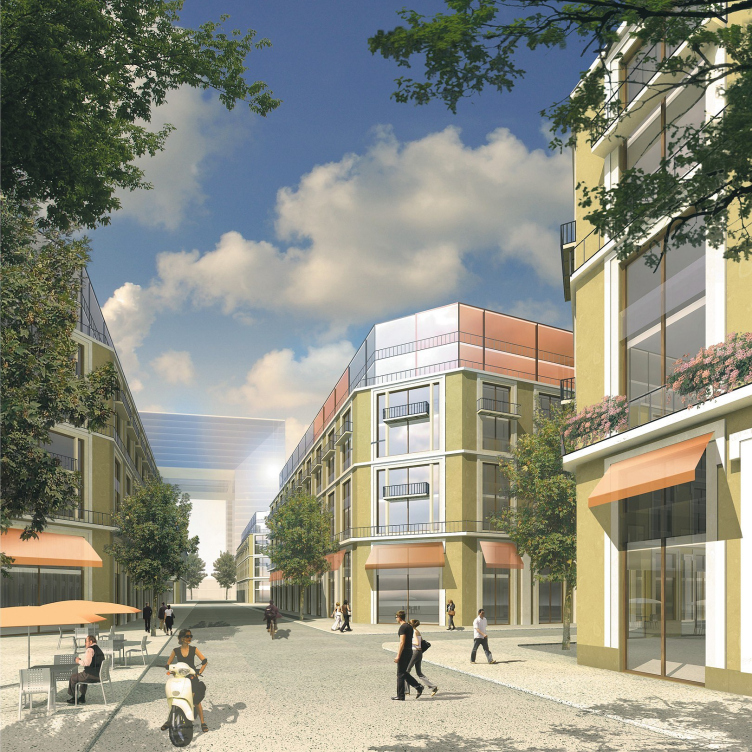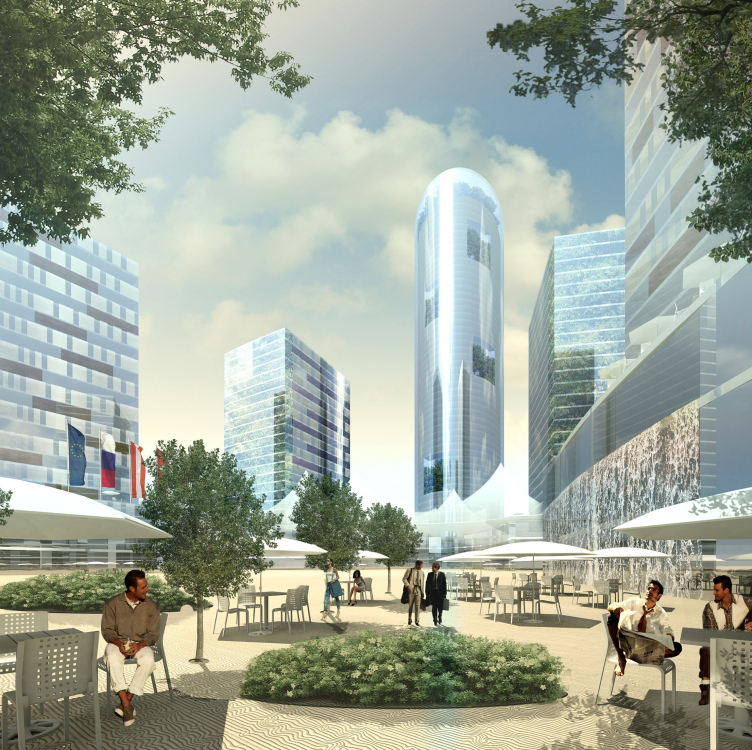Kudrovo is located in Vsevolozhsky district in Leningradsky region between the east border of Saint-Petersburg and the Ring Car Road. The total area of the purposed territory is 150 ha. From the south it has border with Murmanskoe highway and the territory of the retail and entertainment complex “Mega-Ikea”, from the North it is bordered by the Okkervil river (most romantic water pond in the region due to its name) and water protection zone of the North water station. Kudrovo is a small village (less than 50 houses) located in the place where the river merges with an unnamed stream around which there are endless fields and forests, never properly explored. In the end of the 1980’s the city wanted to make a housing development there but the economical and political situation prevented its realization. Well, Saint-Petersburg only benefited from that – instead of another standard residential district, now the city possesses a large territory ecologically fine and vacant from developments and manage it most reasonably. And they started primary site cultivation, at least.
In 2007 the territory of the future town was shared between a number of developers-investors. The largest part, located between Dybenko street and “Ikea-Mega” complex, was given to Setl City, a development company, which organized the invited architectural tendering on the best master-plan of the future housing area. NBBG, Sweco, Arup and creative tandem Gerasimov-Tchoban took part in it. The project of the last was considered most elaborated and promising.
Evgeny Gerasimov and Sergey Tchoban started from zoning of the territory. The architects wisely considered: there is a large retail and entertainment centre on the south border and by the roadway, so it is most logical to place non-residential buildings along it, which from one hand will be available not only for the district residents, but for the urban residents as well, and from the other hand, they will become a noise-protective buffer for the residential blocks. On the north side the future residential space will be separated from a less noisy highway by Orkvil, in its bottom-land the architects decided to lay out a landscape park with various cultural and sports facilities and zones for active rest. The two pieces of public activities are connected by the two parallel transport roads and between them the architect laid a path for foot-walkers - the main axis of the entire housing estate layout.
It is stretched from the north to the south, starting after Dybenko street connecting another new housing development and the future neighborhood by an overground passage. The axle crosses the landscape park and dives into an underground passage and again comes out as a boulevard which on the south border ends as a small square unfolded towards a block of office and entertainment centre. Due to numerous built-in car lofts pedestrian zone has an active vertical relief which is intensified by a lot of stairs of different configuration and rampants, some are greened. This simple method finely varies the scenery of the boulevard saving the core street from dullness and hiding its real length. Developments at both sides are also dynamic – along the entire promenade there are retail and entertainment centers, designing objects equal in number of storeys and spaces (stylobates for high-rise residential buildings), the architects did their best to vary forms and décor of the facades.
There are residential small blocks on both sides of the pedestrian zone and among there are green recreation with schools, nursery schools and services. These blocks, there are 7 of them, and a single office block is thread in pairs on the main axis, recreation zones are connected by underground passages. Though, at the stage of master-plan development and concept, issues of the architecture were less toughed, Gerasimov and Tchoban were realizing such great construction development will end in monotonous visual environment and the question how they could avoid that interested them from the very beginning. At once they decided to project each one separately and get 7 different master-plans guaranteeing various panoramas and prospect even in case of standard development (in crises period anything can happen). And soon after they thought of adding each an atmosphere of a european city. So there appeared “Barcelona” with peculiar streets, houses with splay corners and inner yards, “Paris” with the central square in the shape of a star and “Rome” which reminds forum on the plan. Structure of the other blocks is predictable: “Amsterdam” with a system of inner canals, “Berlin” separate houses, “London” lenear development in the shape of separate trapezoidal wedges and in ”Madrid” – enlarged Plaza Mayor with tight blocks along the perimeter.
Must say the idea to copy in miniature European cities is not new and have long ago proved its economical consistency in the segment of countryside housing. Only, developers narrow famous geographical names to topical architectural quotes. In Kudrovo it is different, very detail reproducing the structures proved through the centuries, the authors avoid stylizations in architecture on purpose. Evgeny Gerasimov is sure such minimal details like layouts and proportions of separate objects are able to create an interesting connotation line referring to traditions of a city and bring a space with a bright and individual character.

